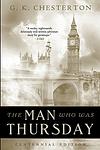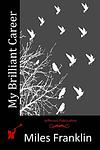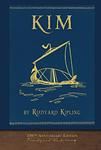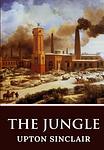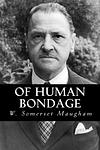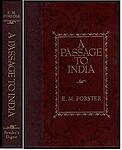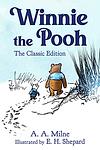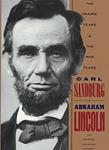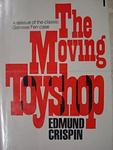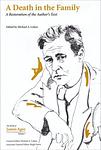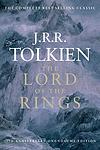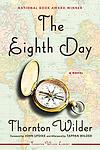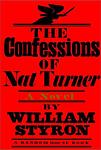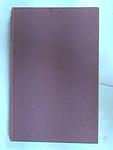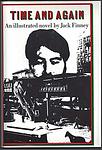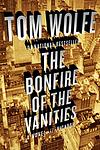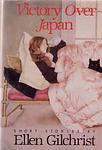Nancy Pearl's 100 Good Reads, Decade by Decade
This is one of the 305 lists we use to generate our main The Greatest Books list.
-
The Golden Bowl by Henry James
The Golden Bowl is a complex narrative that revolves around an American woman and her daughter who marry a father and son. The daughter's husband previously had a romantic relationship with the mother's husband, leading to a tense and intricate web of relationships. The novel explores themes of marriage, adultery, and familial bonds, and is renowned for its detailed characterization and intricate plot structure.
The 431st Greatest Book of All Time -
The Man That Corrupted Hadleyburg, And Other Stories And Essays by Mark Twain
This collection features a series of stories and essays that delve into human nature, ethics, and societal values, highlighted by the titular story about a town known for its unassailable honesty, which is tested by a stranger's clever scheme. Through satire and irony, the author explores themes of hypocrisy, greed, and moral integrity, revealing the complexities and often humorous contradictions of human behavior and societal norms. The stories and essays blend wit with sharp social commentary, showcasing the author's keen observations of human folly and the pretenses of societal respectability.
The 8243rd Greatest Book of All Time -
The Man Who Was Thursday by G. K. Chesterton
"The Man Who Was Thursday" is a metaphysical thriller that revolves around a poet turned detective who infiltrates a secret society of anarchists in London. Each member of the society is named after a day of the week, and the protagonist becomes 'Thursday.' As he delves deeper, he discovers that the other members are also undercover detectives, each unaware of the others' true identities. The narrative explores themes of order and chaos, faith and unbelief, with a surprising twist regarding the identity of the society's leader, 'Sunday.'
The 596th Greatest Book of All Time -
Heart of Darkness by Joseph Conrad
This classic novel follows the journey of a seaman who travels up the Congo River into the African interior to meet a mysterious ivory trader. Throughout his journey, he encounters the harsh realities of imperialism, the brutal treatment of native Africans, and the depths of human cruelty and madness. The protagonist's journey into the 'heart of darkness' serves as both a physical exploration of the African continent and a metaphorical exploration into the depths of human nature.
The 25th Greatest Book of All Time -
My Brilliant Career by Miles Franklin
The book follows the story of a headstrong and ambitious young woman named Sybylla, who dreams of escaping her rural life and becoming a writer. Set in late 19th century Australia, Sybylla faces societal expectations and struggles with her own desires for independence and self-expression. As she navigates through love, family, and societal pressures, Sybylla's journey becomes a reflection of the challenges faced by women in a patriarchal society, ultimately questioning the sacrifices one must make to pursue their dreams.
The 1173rd Greatest Book of All Time -
A Room With a View by E. M. Forster
Set in Italy and England, the novel tells the story of a young English woman, Lucy Honeychurch, who travels to Florence with her older cousin and chaperone. During her stay in Italy, Lucy meets and falls in love with a free-spirited man, but due to societal pressures, she becomes engaged to a wealthy but pretentious man back home in England. The novel explores themes of societal norms, personal growth, and the struggle between heart and mind as Lucy must decide between conforming to societal expectations or following her own desires.
The 290th Greatest Book of All Time -
Kim by Rudyard Kipling
"Kim" is a thrilling adventure set in India during the height of the British empire. The story follows the life of a young Irish orphan, Kimball O'Hara, who grows up on the streets of Lahore. Kim's life takes a dramatic turn when he becomes involved in the 'Great Game', the political conflict between Russia and Britain in Central Asia. Guided by an old Tibetan Lama on a spiritual quest, Kim is recruited by the British secret service and sent on a dangerous mission across the Himalayas. The novel explores themes of identity, imperialism, and East vs. West.
The 214th Greatest Book of All Time -
The House of Mirth by Edith Wharton
Set in the backdrop of New York's high society during the turn of the 20th century, the novel follows the life of Lily Bart, a beautiful but impoverished woman of social standing. As she navigates the pressures and expectations of her social circle, Lily grapples with the need to secure a wealthy husband to maintain her lifestyle. However, her romantic inclinations and her desire for personal freedom come into conflict with societal norms, leading to her tragic downfall.
The 150th Greatest Book of All Time -
Buddenbrooks by Thomas Mann
"Buddenbrooks" is a novel that chronicles the decline of a wealthy north German merchant family over the course of four generations. The narrative focuses on the fluctuating fortunes and internal struggles of the family, reflecting the societal changes and economic decline of the period. The family's personal and business relationships, their moral values, and their struggle to maintain social status are all explored against the backdrop of the changing political and social landscape.
The 139th Greatest Book of All Time -
The Jungle by Upton Sinclair
This novel exposes the harsh conditions and exploited lives of immigrants in the United States in Chicago and similar industrialized cities. The protagonist, a young Lithuanian immigrant, works in the meatpacking industry and experiences the extreme poverty, poor working conditions, and lack of social services. The narrative explores the corruption of the American meatpacking industry in the early 20th century and the hardships faced by the working class, leading to significant public outcry that contributed to the passage of the Pure Food and Drug Act.
The 184th Greatest Book of All Time -
A Portrait of the Artist as a Young Man by James Joyce
This novel is a semi-autobiographical account of a young man's intellectual and artistic development in late 19th-century Ireland. The protagonist struggles with issues of identity, faith, and nationality, ultimately rejecting the traditional values of his Catholic upbringing to pursue his own path as an artist. The book is renowned for its innovative narrative style and its exploration of themes such as individuality, freedom, and the nature of art.
The 68th Greatest Book of All Time -
My Antonia by Willa Cather
This novel follows the life of Antonia Shimerda, a Bohemian immigrant to the United States, through the eyes of her childhood friend, Jim Burden. The narrative explores their lives in the harsh environment of the American Midwest, their struggles with poverty, cultural adaptation, and personal growth. Antonia's resilience, strength, and love for life inspire Jim, who moves away for education and career but remains emotionally tied to the woman and the prairie life he left behind. The book is a compelling portrayal of pioneer life, human resilience, and the enduring power of friendship.
The 118th Greatest Book of All Time -
Winesburg, Ohio by Sherwood Anderson
"Winesburg, Ohio" is a collection of interconnected short stories that paints a picture of life in a small town in the early 20th century. The book captures the hopes, dreams, and despair of the inhabitants of Winesburg, focusing on a young reporter as he interacts with the townspeople. Each character's story reveals their inner struggles, loneliness, and search for understanding and connection, providing a profound exploration of human nature and the complexities of life in a small community.
The 284th Greatest Book of All Time -
Sons and Lovers by D. H. Lawrence
"Sons and Lovers" is a semi-autobiographical novel that explores the complex relationships between a miner's wife, her husband, and their two sons. The story focuses on the intense emotional and psychological bonds between the mother and her sons, as well as the struggles they face in their romantic relationships due to their deep attachment to their mother. The novel delves into themes of class, love, sexuality, and the oedipal complex, presenting a vivid picture of working-class life in early 20th century England.
The 126th Greatest Book of All Time -
The Metamorphosis by Franz Kafka
The book tells the story of a man who wakes up one morning to find himself transformed into a giant insect. His transformation causes him to lose his job and become ostracized from his family, who are horrified and repulsed by his new form. As he grapples with his new reality, he becomes increasingly isolated and starts to lose his sense of humanity. The book explores themes of alienation, guilt, and identity, and is a profound examination of the human condition.
The 124th Greatest Book of All Time -
Psmith In The City by P. G. Wodehouse
"Psmith in the City" follows the adventures of the charming and eccentric Psmith, who finds himself working in a dreary bank after his father's financial downturn. Despite the mundane nature of his job, Psmith's wit and unflappable demeanor bring humor and upheaval to the rigid bureaucracy of the bank. His friendship with former schoolmate Mike, who is also reluctantly employed at the bank, provides a backdrop for various comedic escapades. Throughout the story, Psmith's unique approach to life and work challenges the conventions of the banking world and injects fun and chaos into everyday situations.
The 8243rd Greatest Book of All Time -
Of Human Bondage by W. Somerset Maugham
The novel follows the life of Philip Carey, a club-footed orphan who struggles with his disability and his passionate and unrequited love for a destructive woman. His journey takes him from a strict religious upbringing in England to an adventurous life in Paris where he attempts to become an artist before finally settling into a career in medicine. The story is a powerful exploration of human desire, ambition, and the search for meaning in life.
The 268th Greatest Book of All Time -
The Thirty-Nine Steps by John Buchan
Set on the eve of World War I, the novel follows an ordinary man who becomes entangled in a dangerous plot after a mysterious stranger shows up at his apartment, claiming to be a spy. When the stranger is murdered, the protagonist is falsely accused and becomes a fugitive, fleeing to the Scottish highlands. He must unravel a conspiracy of international espionage and prevent a political assassination to clear his name.
The 404th Greatest Book of All Time -
Some Experiences Of An Irish R.M. by E.Œ. Somerville, Martin Ross
The book is a humorous collection of tales that follow the misadventures of a retired British army officer who becomes a Resident Magistrate in the West of Ireland at the end of the 19th century. The protagonist navigates the idiosyncrasies of rural Irish life, dealing with eccentric locals, peculiar customs, and the challenges of maintaining law and order in a community where the letter of the law is often at odds with local tradition. The stories are characterized by their wit, vivid characterizations, and the amusing contrast between the protagonist's English sensibilities and the Irish countryside's unpredictable nature.
The 1305th Greatest Book of All Time -
Trent's Last Case by E. C. Bentley
In this classic detective novel, the story follows the intelligent and resourceful amateur sleuth, Philip Trent, as he investigates the puzzling murder of a wealthy financier. Initially deemed an open-and-shut case, Trent delves deeper, uncovering a complex web of deceit, love, and betrayal. His sharp wit and keen observation lead him through a series of twists and turns, but his final conclusion is dramatically mistaken. In a surprising twist, Trent falls in love, which ultimately leads to a profound personal transformation and the unexpected resolution of the case, challenging the very nature of detective work and the fallibility of logical deduction.
The 914th Greatest Book of All Time -
All Quiet on the Western Front by Erich Maria Remarque
The novel tells the story of a young German soldier, Paul Bäumer, and his experiences during World War I. The narrative explores the physical and emotional toll of war, the camaraderie between soldiers, and the disillusionment of a generation thrown into a brutal conflict. The protagonist and his friends grapple with survival, fear, and the loss of innocence, providing a stark and poignant critique of the futility and destructiveness of war.
The 100th Greatest Book of All Time -
The Great Gatsby by F. Scott Fitzgerald
Set in the summer of 1922, the novel follows the life of a young and mysterious millionaire, his extravagant lifestyle in Long Island, and his obsessive love for a beautiful former debutante. As the story unfolds, the millionaire's dark secrets and the corrupt reality of the American dream during the Jazz Age are revealed. The narrative is a critique of the hedonistic excess and moral decay of the era, ultimately leading to tragic consequences.
The 2nd Greatest Book of All Time -
A Passage to India by E. M. Forster
The novel takes place in British-ruled India, where the cultural divide between the British and the Indians is explored. The story focuses on the experiences of an Indian Muslim, Dr. Aziz, and his interactions with an English woman, Miss Quested, and her elderly friend, Mrs. Moore. After an expedition to the Marabar Caves, Miss Quested accuses Dr. Aziz of assault, leading to a trial that deepens the racial tensions and prejudices between the colonizers and the colonized. The novel is a critique of British imperialism and a study of the cultural and racial misunderstandings and ill-will between the British and the Indian people.
The 53rd Greatest Book of All Time -
An American Tragedy by Theodore Dreiser
This classic novel explores the dark side of the American Dream through the story of a young man who, despite his humble beginnings, aspires to climb the social ladder. He becomes involved with two women, one wealthy and one from a working-class background. His ambition and desire for status lead him to commit a crime that ultimately results in his downfall. The novel is a stark examination of the destructive power of unchecked ambition and the moral compromises people are willing to make in pursuit of wealth and status.
The 162nd Greatest Book of All Time -
Gentlemen Prefer Blondes: The Illuminating Diary of a Professional Lady by Anita Loos
This book is a satirical novel that follows the adventures of a blonde flapper named Lorelei Lee, who uses her looks and charm to climb the social ladder. Lorelei, originally from Little Rock, Arkansas, is a materialistic and somewhat naive woman, who values men for their wealth and status. The story, presented as Lorelei's diary, humorously explores themes of gender, class, and the American pursuit of wealth and status in the early 20th century.
The 700th Greatest Book of All Time -
Winnie the Pooh by A. A Milne
This classic children's tale follows the charming adventures of a lovable, honey-loving bear named Winnie the Pooh and his friends in the Hundred Acre Wood. With his companions, including the timid Piglet, the gloomy Eeyore, the energetic Tigger, and the wise Owl, Pooh navigates through various situations and dilemmas, often with humorous and heartwarming results. The book is a celebration of friendship, imagination, and the simple joys of life.
The 165th Greatest Book of All Time -
Mrs. Dalloway by Virginia Woolf
The novel chronicles a day in the life of Clarissa Dalloway, a high-society woman in post-World War I England, as she prepares for a party she is hosting that evening. Throughout the day, she encounters various characters from her past, including a former suitor and a shell-shocked war veteran. The narrative jumps back and forth in time and in and out of different characters' minds, exploring themes of mental illness, existentialism, and the nature of time.
The 36th Greatest Book of All Time -
Coming of Age in Samoa by Margaret Mead
"Coming of Age in Samoa" is a groundbreaking anthropological study that explores adolescence, sexuality, and social norms in Samoan society. The author lived among the Samoans in the 1920s, observing and recording their way of life, particularly focusing on the experiences of teenage girls. The book challenges Western views on sexual morality and the nature versus nurture debate, suggesting that culture plays a significant role in adolescent development and behavior. The author's observations indicate that Samoan teenagers face less stress and confusion than their American counterparts, largely due to their society's relaxed attitudes towards sex and clear societal roles.
The 1226th Greatest Book of All Time -
Abraham Lincoln: The War Years by Carl Sandburg
This book is a comprehensive biography of Abraham Lincoln, focusing particularly on his leadership during the Civil War. It delves into Lincoln's political strategies, his role in emancipation, and his military leadership, providing a detailed and nuanced portrayal of his presidency. The book also explores Lincoln's personal life and character, offering insights into his relationships and his struggles with depression. It presents a vivid picture of a man who was both a shrewd politician and a deeply human individual, navigating one of the most tumultuous periods in American history.
The 8178th Greatest Book of All Time -
The Magic Mountain by Thomas Mann
In this novel, the protagonist, a young, ordinary man, visits his cousin at a tuberculosis sanatorium in the Swiss Alps. Intending to stay for only a few weeks, he ends up remaining there for seven years, becoming a patient himself. The book explores his experiences and relationships with other patients and staff, delving into philosophical discussions on life, time, and the nature of disease. It also provides a vivid portrayal of the European society and intellectual life on the eve of World War I.
The 43rd Greatest Book of All Time -
The Good Earth by Pearl S. Buck
This novel tells the story of a poor farmer in rural China, who struggles to survive and prosper. Over time, he manages to build a life for himself and his family, eventually becoming a wealthy landowner. However, his newfound wealth and status lead to a moral decline, as he becomes disconnected from the land that gave him everything. The narrative explores themes of wealth, poverty, and the human connection to the earth.
The 294th Greatest Book of All Time -
Nineteen Nineteen by John Dos Passos
"Nineteen Nineteen" is the second novel in a trilogy that explores the social and political changes in the United States during the early 20th century. It uses a unique narrative style that blends traditional storytelling with newspaper clippings, song lyrics, and biographies of historical figures. The book focuses on the year 1919, a time of significant upheaval in America and abroad, and follows a diverse group of characters as they navigate these tumultuous times.
The 4157th Greatest Book of All Time -
The Maltese Falcon by Dashiell Hammett
This classic detective novel follows a private investigator who is hired by a mysterious woman to track down her missing sister. The case quickly becomes complicated when the investigator is caught up in a dangerous hunt for a priceless artifact, the Maltese Falcon. As he navigates a world of treachery, deceit, and murder, he must use his wit and courage to outsmart his enemies and solve the mystery.
The 142nd Greatest Book of All Time -
The Grapes of Wrath by John Steinbeck
The book follows the Joad family, Oklahoma farmers displaced from their land during the Great Depression. The family, alongside thousands of other "Okies," travel to California in search of work and a better life. Throughout their journey, they face numerous hardships and injustices, yet maintain their humanity through unity and shared sacrifice. The narrative explores themes of man's inhumanity to man, the dignity of wrath, and the power of family and friendship, offering a stark and moving portrayal of the harsh realities of American migrant laborers during the 1930s.
The 15th Greatest Book of All Time -
Goodbye, Mr. Chips by James Hilton
The novel tells the story of Mr. Chipping, a beloved schoolteacher who dedicates his entire adult life to teaching at an all-boys English boarding school. Known affectionately as Mr. Chips, the gentle and kind-hearted teacher influences many generations of boys with his wisdom and human compassion. Through his eyes, readers experience the changes in British society and the world from the late 19th century through the early 20th century, including the impact of World War I. Mr. Chips, despite personal loss and the world's evolving landscape, remains a steadfast figure of nostalgia and idealism in the lives of his students.
The 5529th Greatest Book of All Time -
Miss Lonelyhearts by Nathanael West
This novel revolves around an advice columnist, who writes under the pseudonym "Miss Lonelyhearts", for a New York newspaper during the Great Depression. As he reads and responds to the desperate letters from the city's distressed and downtrodden, he becomes increasingly disillusioned and depressed, struggling with his own faith, identity, and the bleakness of the human condition. The protagonist's personal life also spirals out of control, entangling him in a series of complicated romantic relationships and leading to a tragic conclusion.
The 660th Greatest Book of All Time -
The Citadel by A. J. Cronin
"The Citadel" follows the journey of a young and idealistic Scottish doctor, Andrew Manson, who begins his career in a small Welsh mining town, aiming to improve the health conditions of the impoverished community. As he progresses in his career, moving to larger, wealthier areas, he faces ethical dilemmas and corruption within the medical profession. The novel explores his struggle to maintain his principles and dedication to patient care amidst the pressures of personal gain and societal status, ultimately questioning the values and integrity of the medical establishment.
The 8243rd Greatest Book of All Time -
Captain Hornblower R.N.: Hornblower and the 'Atropos', The Happy Return, A Ship of the Line by C S Forester
This book follows the thrilling adventures of a brave and strategic naval officer during the Napoleonic Wars. The protagonist is placed in charge of the 'Atropos', the smallest ship in the Navy's fleet, where he must navigate a series of challenging missions, including the recovery of treasure from the bottom of the Mediterranean Sea. The story also chronicles his return to England, where he must deal with a mutinous crew and the challenges of commanding a ship of the line. The protagonist's courage, intelligence, and leadership are tested at every turn, making for an exciting and captivating read.
The 882nd Greatest Book of All Time -
Light in August by William Faulkner
Set in the American South during the 1930s, this novel explores complex social and personal issues through the intertwining stories of its characters. The narrative primarily follows a man of ambiguous racial identity on a quest to find his father, a pregnant woman searching for the father of her unborn child, and a disgraced minister attempting to navigate his own moral compass. The book delves into themes of identity, race, and the human struggle for understanding and redemption, all set against the backdrop of the deep-rooted prejudices and social norms of the time.
The 163rd Greatest Book of All Time -
Gone With the Wind by Margaret Mitchell
Set against the backdrop of the American Civil War and Reconstruction era, this novel follows the life of a young Southern belle, who is known for her beauty and charm. Her life takes a turn when she is forced to make drastic changes to survive the war and its aftermath. The story revolves around her struggle to maintain her family's plantation and her complicated love life, especially her unrequited love for a married man, and her tumultuous relationship with a roguish blockade runner.
The 47th Greatest Book of All Time -
Hiroshima by John Hersey
This book provides a detailed account of the aftermath of the atomic bombing of Hiroshima during World War II, as experienced by six survivors. The narrative follows the survivors from the moment of the explosion to their lives in the following years. It explores their struggles, their resilience, and the profound physical, emotional, and social impacts of the event, offering a poignant examination of the human capacity to endure and rebuild in the face of unimaginable devastation.
The 516th Greatest Book of All Time -
Brideshead Revisited by Evelyn Waugh
The novel is a nostalgic story about the narrator's involvement with the Flyte family, British aristocrats living in a grand mansion called Brideshead. The story explores themes of faith, love, and the decline of the British aristocracy, primarily through the narrator's relationships with the family's Catholic faith and his complicated friendship with the family's son and his love for the daughter. The novel is set in the backdrop of the time period between the two World Wars.
The 167th Greatest Book of All Time -
The Moving Toyshop by Edmund Crispin
In this classic British detective novel, a poet on holiday in Oxford stumbles upon a woman's body in a toyshop at night, only to find the shop has vanished by morning. Teaming up with an eccentric literature professor, the poet embarks on a whimsical and cerebral quest to solve the mystery, navigating a labyrinth of literary references, quirky characters, and puzzling clues. The story combines elements of farce and traditional whodunit, leading to a climactic chase and an unexpected twist, all set against the backdrop of the historic university town.
The 1223rd Greatest Book of All Time -
Gentleman's Agreement by Laura Z. Hobson
"Gentleman's Agreement" is a thought-provoking novel that explores the insidious nature of anti-Semitism in post-World War II America. The story follows a journalist who, in order to expose discrimination, pretends to be Jewish and experiences firsthand the subtle and overt prejudices that permeate through society. As he navigates through professional and personal challenges, the protagonist's experiment impacts his relationships and personal identity, leading to a deeper understanding of societal biases and the importance of confronting them. The novel is a compelling examination of prejudice, integrity, and the quest for social justice.
The 8243rd Greatest Book of All Time -
Shane by Jack Schaefer
The novel centers around a mysterious and charismatic gunslinger named Shane who arrives and befriends a farming family in Wyoming. As tensions escalate between homesteaders and a ruthless cattle baron who seeks to drive them out, Shane's violent past catches up with him, leading to a climactic battle to protect the family and their community. Throughout the story, Shane grapples with his identity and the struggle between his turbulent past and the possibility of redemption through acts of courage and self-sacrifice.
The 8243rd Greatest Book of All Time -
Cross Creek by Marjorie Kinnan Rawlings
"Cross Creek" is a memoir that captures the author's experiences living in a remote rural community in Florida during the 1930s. The narrative beautifully intertwines the natural landscape and the colorful lives of the local residents, offering a vivid portrayal of the challenges and joys of rural life. The author's deep connection to the land and her neighbors is explored through rich, descriptive prose, revealing her profound appreciation for the beauty and harshness of the environment, as well as the simplicity and complexity of human relationships in a close-knit community.
The 8243rd Greatest Book of All Time -
The Plague by Albert Camus
The novel is set in the Algerian city of Oran during the 1940s, where a deadly plague sweeps through, causing the city to be quarantined. The story is told through the eyes of a doctor who witnesses the horror and suffering caused by the disease. The narrative explores themes of human resilience, solidarity, and the struggle against the absurdities of life. It also examines how individuals and society respond to death and disease, creating a profound meditation on the nature of existence and human endurance.
The 135th Greatest Book of All Time -
The Berlin Stories by Christopher Isherwood
"The Berlin Stories" is a collection of two novels that present a semi-autobiographical account of the author's time in 1930s Berlin during the rise of the Nazi Party. It vividly portrays the city's underground scene, capturing the lives of a variety of characters from different social classes and backgrounds. The narrative provides a stark and poignant exploration of the human condition against the backdrop of political upheaval and societal change, offering a unique perspective on a critical period in history.
The 1940th Greatest Book of All Time -
For Whom the Bell Tolls by Ernest Hemingway
Set in the backdrop of the Spanish Civil War, the novel follows the story of an American dynamiter, who is assigned the task of blowing up a bridge during a crucial attack on the city of Segovia. Alongside the war narrative, the story also explores his relationships with various characters, including his love affair with a young Spanish woman. The narrative beautifully encapsulates themes of love, war, death, and the transient nature of life.
The 79th Greatest Book of All Time -
Native Son by Richard Wright
This novel tells the story of Bigger Thomas, a young African-American man living in Chicago's South Side during the 1930s. Bigger's life takes a tragic turn when he accidentally kills a young white woman. The incident leads to his arrest and trial, revealing the deep-seated racial prejudices and injustices prevalent in American society at the time. The narrative explores themes of poverty, systemic racism, fear, and the effects of oppression.
The 69th Greatest Book of All Time -
Gift From The Sea by Anne Morrow Lindbergh
In this lyrical and introspective work, the author reflects on the complexities of a woman's life and the challenges of balancing societal expectations, relationships, and personal growth. Drawing inspiration from her time on a seaside retreat, she uses the metaphor of various shells found on the beach to explore themes of solitude, love, and the evolving stages of a woman's life. Through her meditations, she advocates for simplicity and inner peace, suggesting that women can find strength and renewal by periodically withdrawing from the demands of everyday life, much like the ebb and flow of the ocean's tides.
The 3402nd Greatest Book of All Time -
The Catcher in the Rye by J. D. Salinger
The novel follows the story of a teenager named Holden Caulfield, who has just been expelled from his prep school. The narrative unfolds over the course of three days, during which Holden experiences various forms of alienation and his mental state continues to unravel. He criticizes the adult world as "phony" and struggles with his own transition into adulthood. The book is a profound exploration of teenage rebellion, alienation, and the loss of innocence.
The 4th Greatest Book of All Time -
Invisible Man by Ralph Ellison
The novel is a poignant exploration of a young African-American man's journey through life, where he grapples with issues of race, identity, and individuality in mid-20th-century America. The protagonist, who remains unnamed throughout the story, considers himself socially invisible due to his race. The narrative follows his experiences from the South to the North, from being a student to a worker, and his involvement in the Brotherhood, a political organization. The book is a profound critique of societal norms and racial prejudice, highlighting the protagonist's struggle to assert his identity in a world that refuses to see him.
The 28th Greatest Book of All Time -
A Death in the Family by James Agee
The novel centers around the tragic death of a young father in a car accident, exploring its profound impact on his family. The narrative delves into the grieving process of his wife, children, and extended family in Knoxville, Tennessee in 1915. The story explores themes of love, loss, and the struggle to find meaning in the face of tragic circumstances. It is a poignant examination of the human condition and the inevitable experience of loss.
The 563rd Greatest Book of All Time -
Lord of the Flies by William Golding
A group of British boys are stranded on an uninhabited island after their plane crashes during wartime. Initially, they attempt to establish order, creating rules and electing a leader. However, as time passes, their civility erodes, and they descend into savagery and chaos. The struggle for power intensifies, leading to violence and death. The novel explores themes of innocence, the inherent evil in mankind, and the thin veneer of civilization.
The 55th Greatest Book of All Time -
The Diary of a Young Girl by Anne Frank
This book is a real-life account of a young Jewish girl hiding from the Nazis during World War II, written in diary format. The girl and her family are forced to live in a secret annex in Amsterdam for two years, during which she writes about her experiences, fears, dreams, and the onset of adolescence. The diary provides a poignant and deeply personal insight into the horrors of the Holocaust, making it a powerful testament to the human spirit.
The 60th Greatest Book of All Time -
Fahrenheit 451 by Ray Bradbury
In a dystopian future where books are banned and burned by the government to prevent dissenting ideas, a fireman named Guy Montag, whose job is to burn books, begins to question the society he serves. After a series of events, including meeting a free-thinking teenager and witnessing a woman choosing to die with her books, Montag begins to secretly collect and read books, leading to his eventual rebellion against the oppressive regime. The narrative serves as a critique of censorship, conformity, and the dangers of an illiterate society.
The 106th Greatest Book of All Time -
The Man In The Gray Flannel Suit by Sloan Wilson
The novel explores the life of Tom Rath, a World War II veteran trying to balance his family life with the demands of a high-pressure job in 1950s America. Struggling with the haunting memories of war and a secret that could destroy his marriage, Tom is emblematic of the post-war American dream and the inner turmoil that many faced during this era. As he navigates the complexities of his personal and professional life, he seeks to find his own sense of identity and purpose amidst the societal pressures of success and conformity.
The 8243rd Greatest Book of All Time -
The Lord of the Rings by J. R. R. Tolkien
This epic high-fantasy novel centers around a modest hobbit who is entrusted with the task of destroying a powerful ring that could enable the dark lord to conquer the world. Accompanied by a diverse group of companions, the hobbit embarks on a perilous journey across Middle-earth, battling evil forces and facing numerous challenges. The narrative, rich in mythology and complex themes of good versus evil, friendship, and heroism, has had a profound influence on the fantasy genre.
The 17th Greatest Book of All Time -
The Mandarins by Simone de Beauvoir
"The Mandarins" is a novel that explores the personal and political lives of a group of intellectuals in post-World War II France. The narrative delves into their struggles with ethical dilemmas, political ideologies, and personal relationships in a rapidly changing world. The book is known for its exploration of existentialism and feminism, providing a vivid portrayal of the human condition and the complexities of freedom.
The 545th Greatest Book of All Time -
The Spy Who Came in From the Cold by John le Carré
This novel is a fascinating tale of espionage during the Cold War, centered around a British intelligence officer who is seemingly ready to end his spy career. However, he is given one last mission before his retirement: to bring down the head of East German Intelligence. As he navigates the dangerous world of spies and double agents, he is forced to confront his own past and the sacrifices he has made for his country. The story is a complex exploration of morality, loyalty, and the personal cost of political conflict.
The 152nd Greatest Book of All Time -
Pale Fire by Vladimir Nabokov
The novel is a unique blend of fiction, commentary, and poetry, presented as a 999-line poem written by a fictional poet, followed by an extensive commentary and foreword by his neighbor and academic colleague. The novel blurs the line between reality and fiction, as the commentator's notes reveal an alternative narrative, one of exile, intrigue, and murder. The book is a playful exploration of authorship, deception, and the nature of art.
The 91st Greatest Book of All Time -
The Jewel In The Crown by Paul Scott
Set during the final days of the British Raj in India, this novel explores the political and personal repercussions of a young British woman's rape in a fictional Indian city. The incident stirs up racial tensions and leads to a series of events that reveal the deep-seated prejudices and complexities of colonial rule. The story is a complex blend of perspectives, weaving together the lives of its diverse cast of characters, and offering a critical examination of the British colonial experience.
The 1746th Greatest Book of All Time -
The Evolution Man Or How I Ate My Father by Roy Lewis
In this satirical novel, readers are transported to a comically portrayed prehistoric era, where an inventive hominid family led by an ambitious patriarch strives to propel human evolution forward. The father, a visionary of his time, introduces groundbreaking advancements such as fire, cooking, and the concept of a future, much to the chagrin and bewilderment of his conservative tribe. His efforts are met with a mix of awe and resistance, as he and his family navigate the challenges of their changing world, grappling with the consequences of progress and the dynamics of their familial relationships. The story humorously explores themes of innovation, tradition, and the complexities of human development through the lens of a family that could be considered the very first to rebel against the status quo.
The 3203rd Greatest Book of All Time -
The Golden Notebook by Doris May Lessing
The novel centers around a woman named Anna Wulf, a writer who keeps four notebooks, each representing a different aspect of her life: her experiences in Africa, her current life in London, a novel she is writing, and her personal experiences. As Anna's mental state deteriorates, she attempts to unify her fragmented self in a fifth notebook, the golden notebook. The novel explores themes of mental breakdown, communism, the changing role of women, and the fear of nuclear war.
The 87th Greatest Book of All Time -
The Chosen by Chaim Potok
The novel explores the unlikely friendship between two Jewish boys in 1940s Brooklyn, New York. One is from a Hasidic background, steeped in religious tradition and destined to follow in his father's footsteps as a spiritual leader, while the other is the son of a secular Jewish intellectual, encouraged to think and question. Their bond is tested by their differing religious views, family expectations, and the external pressures of the surrounding world, including the aftermath of the Holocaust and the creation of the state of Israel. Through their relationship, the book delves into themes of faith, identity, father-son relationships, and the challenges of bridging different worlds and belief systems.
The 2784th Greatest Book of All Time -
The Eighth Day by Thornton Wilder
This novel explores the aftermath of a mine explosion in a small Midwestern town at the turn of the 20th century, which leads to the wrongful conviction of a man for murder. Saved from the gallows by a mysterious stranger, the man flees to South America while his wife and children are left to navigate the social and financial fallout in their community. The narrative delves into themes of justice, faith, and the randomness of destiny, all set against the backdrop of America's industrial revolution.
The 6525th Greatest Book of All Time -
The Balkan Trilogy by Olivia Manning
The narrative follows a young British couple, Harriet and Guy Pringle, as they navigate the tumultuous landscape of Eastern Europe during the early years of World War II. Set against the backdrop of the Balkans, the trilogy paints a vivid picture of the couple's experiences in Romania and Greece, where they encounter a diverse cast of characters, from diplomats and soldiers to refugees and spies. As the war encroaches on their lives, their marriage is tested by the strains of displacement, political uncertainty, and personal betrayal, offering a poignant exploration of love, loyalty, and the human spirit amidst the chaos of conflict.
The 2161st Greatest Book of All Time -
To Kill a Mockingbird by Harper Lee
Set in the racially charged South during the Depression, the novel follows a young girl and her older brother as they navigate their small town's societal norms and prejudices. Their father, a lawyer, is appointed to defend a black man falsely accused of raping a white woman, forcing the children to confront the harsh realities of racism and injustice. The story explores themes of morality, innocence, and the loss of innocence through the eyes of the young protagonists.
The 8th Greatest Book of All Time -
The Confessions of Nat Turner by William Styron
"The Confessions of Nat Turner" is a fictionalized account of a historical event, the 1831 Virginia slave uprising led by Nat Turner. The book is presented as a first-person narrative from Turner's perspective, exploring his life as a slave, his religious visions, and the violent rebellion he led against white slaveholders. The novel delves into the complexities of slavery, morality, and rebellion, while also examining the psychological trauma inflicted by the institution of slavery.
The 663rd Greatest Book of All Time -
Song of Solomon by Toni Morrison
The novel explores the life of an African-American man, Macon "Milkman" Dead III, from birth to adulthood. Set against the backdrop of racial tension in the mid-20th century United States, it delves into his journey of self-discovery and understanding his heritage. As Macon embarks on a literal and figurative journey south to reconnect with his roots, he encounters various characters that help him understand his family history and the power of community. The narrative is deeply rooted in African-American folklore and mythology, offering a profound commentary on identity, personal freedom, and the destructive power of racism.
The 137th Greatest Book of All Time -
Mrs Palfrey at the Claremont by Elizabeth Taylor
This novel focuses on the life of an elderly widow who moves into a London residential hotel, the Claremont, where she befriends the other elderly residents. She forms an unlikely friendship with a young writer, who she passes off as her grandson to the other residents. The story explores themes of aging, loneliness, and the complexities of human relationships.
The 1132nd Greatest Book of All Time -
The Optimist's Daughter by Eudora Welty
The story revolves around a woman who returns to her southern hometown to care for her ailing father. After his death, she is confronted by the harsh realities of her past and the complexities of her present. She navigates through the difficult dynamics of her family, her father's young second wife, and the superficial social circle of her community, all while grappling with her own grief. The novel explores themes of memory, loss, and the often complicated relationships within families.
The 940th Greatest Book of All Time -
The Siege of Krishnapur by J. G. Farrell
Set in India during the period of the British Empire, "The Siege of Krishnapur" is a historical novel that explores the events of the 1857 Sepoy Rebellion. The narrative focuses on the British residents of the fictional town of Krishnapur as they endure a prolonged siege by Indian soldiers. The story delves into the psychological, social, and physical challenges faced by the besieged, and the gradual disintegration of their Victorian-era beliefs and lifestyle. The novel is a commentary on the British Empire, colonialism, and the clash of cultures.
The 406th Greatest Book of All Time -
The Cowboy And The Cossack by Clair Huffaker
In "The Cowboy and the Cossack," a group of American cowboys and Russian Cossacks are forced to set aside their deep-seated cultural differences when they embark on a challenging cattle drive across the Siberian wilderness. Despite initial mistrust and conflicts, the rugged American cowboys and the fierce Cossacks must cooperate to protect the herd from natural dangers, bandits, and their own clashing temperaments. Through their perilous journey, they develop a mutual respect and understanding, showcasing the universal themes of friendship, respect, and the bridging of cultural divides.
The 8243rd Greatest Book of All Time -
Ordinary People by Judith Guest
The novel explores the emotional turmoil within an upper-middle-class family in the wake of a tragic boating accident that takes the life of one teenage son and leaves the other grappling with overwhelming guilt and depression. The story delves into the complexities of grief and the challenges of communication among family members as they struggle to support each other and cope with their individual pain. The narrative provides a poignant look at the ways in which ordinary people confront and navigate the extraordinary challenges of life, ultimately revealing the fragile yet resilient bonds of family.
The 8362nd Greatest Book of All Time -
Edwin Mullhouse by Steven Millhauser
"Edwin Mullhouse" is a novel that intricately explores the life and death of a young boy, Edwin Mullhouse, who dies mysteriously at the age of eleven. The story is narrated by Edwin's best friend and biographer, Jeffrey Cartwright, who meticulously documents Edwin's life from his birth in 1943 to his untimely death in 1954. Set in a small town in Connecticut, the narrative delves deep into Edwin's childhood experiences, his passion for writing, and his complex relationships, all while blurring the lines between reality and fiction. The novel is a profound examination of childhood, creativity, and the nature of biography itself.
The 8243rd Greatest Book of All Time -
The Shining by Stephen King
A recovering alcoholic accepts a job as a winter caretaker at a remote Colorado hotel, hoping the isolation will help him reconnect with his wife and young son, and work on his writing. However, the hotel has a dark history and a powerful malevolent presence that influences him into violence, while his psychic son sees horrific forebodings from both past and future. As the winter weather leaves them snowbound, the father's sanity deteriorates, leading to a terrifying climax.
The 179th Greatest Book of All Time -
Time and Again by Jack Finney
Time and Again is a science fiction novel that follows Simon Morley, a young advertising artist living in New York City, who is recruited by a secret government project to travel back in time to the year 1882. The novel explores themes of nostalgia, love, and the complexity of time travel, as Simon falls in love with a woman from the past and must decide whether to stay in the 19th century or return to his own time.
The 692nd Greatest Book of All Time -
Rumors Of Peace by Ella Leffland
"Rumors of Peace" is a coming-of-age novel set during World War II in a small town in California. The story is told through the eyes of Suse Hansen, a young girl whose worldview expands as she witnesses the impacts of global conflict on her previously sheltered community. As Suse grows up, she grapples with the complexities of war, the nuances of morality, and the painful contradictions between the distant horrors of war and the deceptive tranquility of her hometown. The novel explores themes of innocence, disillusionment, and the loss of innocence through the detailed and poignant observations of its young protagonist.
The 9594th Greatest Book of All Time -
Midnight's Children by Salman Rushdie
The novel tells the story of Saleem Sinai, who was born at the exact moment when India gained its independence. As a result, he shares a mystical connection with other children born at the same time, all of whom possess unique, magical abilities. As Saleem grows up, his life mirrors the political and cultural changes happening in his country, from the partition of India and Pakistan, to the Bangladesh War of Independence. The story is a blend of historical fiction and magical realism, exploring themes of identity, fate, and the power of storytelling.
The 38th Greatest Book of All Time -
Libra by Don DeLillo
This novel is a fictionalized account of the life of Lee Harvey Oswald, the assassin of President John F. Kennedy. It explores Oswald's troubled childhood, his time in the Soviet Union, his return to America, and his involvement in a conspiracy to assassinate the president. The story is told from multiple perspectives, including that of Oswald himself, his mother, and various fictional characters, creating a complex and nuanced portrait of a man who has become a symbol of one of the most traumatic events in American history.
The 1317th Greatest Book of All Time -
The Remains of the Day by Kazuo Ishiguro
The novel is a poignant tale of an English butler, Stevens, who reflects on his life and career during a road trip through the English countryside. As he delves into his past, he reveals his unquestioning loyalty to his former employer, Lord Darlington, and his unexpressed love for the housekeeper, Miss Kenton. The narrative explores themes of dignity, duty, and regret, as Stevens comes to terms with his unquestioning devotion to his employer and the missed opportunities in his personal life.
The 187th Greatest Book of All Time -
Dinner at the Homesick Restaurant by Anne Tyler
"Dinner at the Homesick Restaurant" is a novel about the life of the Tull family, which is marked by abandonment and discord, but also love and resilience. The story is told from the perspective of each family member, providing a unique viewpoint on the family's dynamics and history. The matriarch, Pearl, struggles to raise her three children, Cody, Ezra, and Jenny, after their father abandons them. Each child deals with the abandonment and their dysfunctional family in different ways, shaping their adult lives. The novel explores themes of family, love, abandonment, and the idea of home.
The 770th Greatest Book of All Time -
Bonfire of the Vanities by Tom Wolfe
This novel follows the life of a successful Wall Street bond trader who, after a wrong turn in the Bronx, finds his life spiraling out of control. After a hit-and-run accident in a predominantly black neighborhood, he becomes the target of a political witch hunt, exacerbating racial tensions in the city. As the protagonist's world unravels, the story provides a satirical commentary on 1980s New York City, exploring themes of racism, classism, politics, and greed.
The 245th Greatest Book of All Time -
Victory Over Japan: A Book of Stories by Ellen Gilchrist
"Victory Over Japan: A Book of Stories" is a collection of short stories that offer a glimpse into the lives of various characters, primarily women, in the South. The stories, set in different time periods, explore themes of love, loss, and the complexities of human relationships. The characters are often flawed, dealing with personal struggles and societal expectations, but their resilience and determination shine through, providing a deep and often humorous insight into the human condition.
The 7005th Greatest Book of All Time -
The Prince of Tides by Pat Conroy
"The Prince of Tides" is a gripping narrative about a troubled man who must confront his traumatic past in order to help his twin sister, a poet who has attempted suicide. The protagonist, in the process of aiding his sister's psychiatrist, is forced to delve into their shared history of growing up in a dysfunctional family in South Carolina. The story is a deep exploration of family dynamics, mental health, and the enduring impact of childhood trauma, all set against the backdrop of the Southern United States.
The 1249th Greatest Book of All Time -
Waterland by Graham Swift
"Waterland" is a novel that intertwines the personal history of a history teacher with the social history of the English Fens. The narrative alternates between the past and the present, exploring themes of history, memory, and storytelling. The protagonist's personal story of love, tragedy, and madness is inextricably linked to the history of the Fens, a marshy region in eastern England. The novel also addresses the question of whether history is a cyclical process or a linear one, and how the past influences the present.
The 1208th Greatest Book of All Time -
A Far Cry From Kensington by Muriel Spark
Set in 1950s London, the novel follows the experiences of Mrs. Hawkins, a plump, intelligent, and perceptive war widow who works in the publishing industry. Residing in a boarding house in Kensington, she becomes embroiled in the lives of her eccentric fellow residents and colleagues. As she dispenses wisdom and navigates the peculiarities of post-war London society, Mrs. Hawkins finds herself involved in a series of events that lead her to confront a sinister figure exploiting the vulnerabilities of the literary world. The narrative is a blend of mystery, humor, and insight, offering a sharp critique of the publishing industry and a compassionate look at human foibles.
The 2930th Greatest Book of All Time -
Gorky Park by Martin Cruz Smith
In the heart of Moscow, three corpses found in Gorky Park lead a dedicated Soviet police investigator on a complex and dangerous trail that entangles him in the web of the KGB and the FBI. As he delves deeper into the case, he uncovers a chilling conspiracy and faces moral dilemmas that challenge his very principles and integrity. The investigation becomes a personal quest for truth that takes him far beyond the park's snowy borders, testing his resolve and putting his life at risk in the shadowy intersections of international espionage and political intrigue.
The 1079th Greatest Book of All Time -
The Sparrow by Mary Doria Russell
"The Sparrow" is a thought-provoking science fiction novel that explores the complex themes of faith, culture clash, and the consequences of first contact with an alien civilization. Set in the near future, the story follows a group of Jesuit priests and scientists who embark on a mission to a distant planet after receiving mysterious signals of extraterrestrial life. However, their encounter with the alien species brings about unexpected challenges, ethical dilemmas, and a profound examination of the nature of humanity.
The 7885th Greatest Book of All Time -
The Birthday Boys by Beryl Bainbridge
"The Birthday Boys" is a gripping historical novel that recounts the ill-fated Antarctic expedition led by Captain Robert Falcon Scott, as narrated by five members of the team. Each chapter gives a personal and introspective voice to a different crew member, offering unique perspectives on their daunting journey towards the South Pole. The narrative delves into the camaraderie, conflicts, and harrowing challenges faced by the explorers, revealing their deepest fears and motivations. Through vivid and emotional storytelling, the novel explores themes of ambition, heroism, and the tragic hubris of mankind’s quest to conquer nature.
The 6699th Greatest Book of All Time -
The Virgin Suicides by Jeffrey Eugenides
The novel is a haunting and tragic tale of the five Lisbon sisters who live in suburban America in the 1970s. Their strict, overbearing parents keep them isolated from the world, leading to a sense of mystery and intrigue about the girls in their community. This fascination turns into morbid curiosity when one of the sisters commits suicide, and the remaining sisters become even more sheltered. The story is narrated by a group of neighborhood boys who are obsessed with the girls, and their suicides, trying to piece together the reasons behind their tragic ends.
The 785th Greatest Book of All Time -
Train Go Sorry by Leah Hager Cohen
"Train Go Sorry" is a compelling non-fiction book that delves into the world of the deaf, centered around a school for deaf students in New York City. The author, who has a personal connection to the deaf community through her family, provides an intimate look at the lives and challenges faced by the students and staff at the school. The narrative interweaves the history and evolution of deaf education with personal stories, exploring themes of identity, communication, and community. The title, which means "missing the boat" in American Sign Language, reflects the broader societal disconnect between the hearing and the deaf.
The 9466th Greatest Book of All Time -
The Deep End Of The Ocean by Jacquelyn Mitchard
"The Deep End of the Ocean" is a profound exploration of the complexities of a family's emotional turmoil following the disappearance of a young child. The narrative delves into the life of a mother who faces the heart-wrenching reality of her son's abduction during a high school reunion. As years pass, the family encounters a series of dramatic twists and the unexpected chance of reunification. This story examines themes of loss, identity, and the enduring strength of familial bonds in the face of unimaginable challenges.
The 9565th Greatest Book of All Time -
Native Speaker by Chang-rae Lee
This novel delves into the life of Henry Park, a Korean-American industrial spy in New York City, who grapples with his complex identity, torn between his American upbringing and Korean heritage. After his young son's death and a separation from his wife, Henry's latest assignment—to spy on a rising Korean-American politician—forces him to confront his feelings of alienation and his struggle with language and loyalty. Through his journey, the narrative explores themes of cultural identity, betrayal, and the immigrant experience, painting a poignant picture of a man on the fringes of two cultures, seeking a place to belong.
The 5073rd Greatest Book of All Time -
The Bird Artist by Howard Norman
"The Bird Artist" is a novel set in the early 20th century in a remote Newfoundland coastal village. The story revolves around Fabian Vas, a young man who draws and paints birds. His life takes a dramatic turn when he confesses to the murder of the lighthouse keeper, a crime intertwined with love, betrayal, and his complex relationships with his parents and his former lover. As Fabian navigates the consequences of his actions, the narrative explores themes of passion, redemption, and the impact of the past on the present. The novel is notable for its vivid portrayal of the rugged landscape and the introspective life of its protagonist.
The 9466th Greatest Book of All Time -
A Fine Balance by Rohinton Mistry
"A Fine Balance" is a poignant narrative set in India during the 1970s, a time of political turmoil and upheaval. The plot revolves around four diverse characters - a widow, a young student, and two tailors - who are brought together by fate. Through their interconnected lives, the book explores themes of caste, poverty, political corruption, and the human spirit's resilience. It offers a profound exploration of the delicate balance that sustains life amidst adversity.
The 384th Greatest Book of All Time -
All the Pretty Horses by Cormac McCarthy
This novel follows the journey of a young Texas cowboy who, after his grandfather's death, ventures into Mexico with his best friend in search of a life of freedom and adventure. Their journey becomes complicated when they are arrested and imprisoned, and the protagonist falls in love with the daughter of a wealthy ranch owner. The book explores themes of love, loss, friendship, and the harsh realities of life.
The 557th Greatest Book of All Time -
Memoir From Antproof Case by Mark Helprin
The novel follows the life of an elderly American man who, from his refuge in Brazil, writes his memoirs in an antproof case. He recounts his varied life experiences, from his complicated relationships and his time as a soldier in World War II, to his career as a banker and his obsessive hatred for coffee. As he delves into his past, he reveals the complexities of his personal beliefs and the intricate tapestry of human connections that have shaped him. The narrative weaves together themes of love, madness, and the pursuit of meaning in a chaotic world, all told with a blend of humor and poignancy.
The 9517th Greatest Book of All Time
Book Lust (Book), 100 Books
For more than two decades librarian Nancy Pearl has been one of the USA's most important book 'influencers'
https://www.seattletimes.com/entertainment/the-a-list-book-lister-nancy-pearl/
Her 2003 work Book Lust: Recommended Reading for Every Mood, Moment, and Reason has a lot of recommended works, close to two thousand by my reckoning. There is one chapter in the work called '100 Good Reads, Decade By Decade', ten books per decade from 1900.
Added 18 days ago.
This list has a weight of 26%. To learn more about what this means please visit the Rankings page.
Here is a list of what is decreasing the importance of this list:
- Voters: 1 person voted
- List: only covers mostly "Western Canon" books
- List: criteria is not just "best/favorite"
If you think this is incorrect please e-mail us at [email protected].


